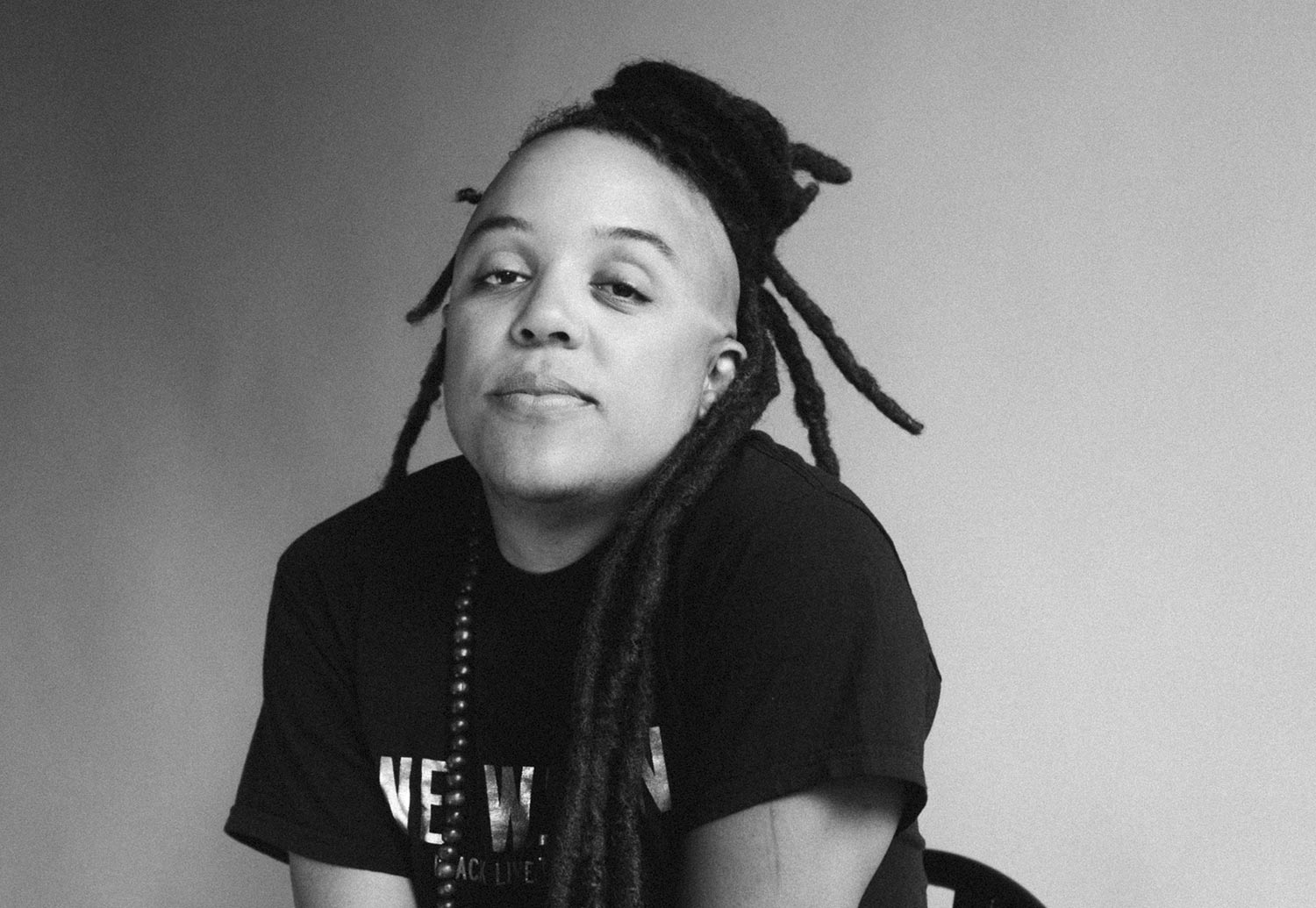Syrus Marcus Ware is a Vanier Scholar, visual artist, activist, curator, educator, and the judge for Room’s Annual Cover Art Contest (which closes January 15, 2019). To learn more about Ware’s diversity of works, we invited Toronto-based artist Ojo Agi to chat with Ware about the different hats he wears, his contribution as a Toronto documentarist, and how makes his work accessible to communities that don’t always have access to mainstream institutions.
Photo credit: Jalani Morgan
Room is currently calling for visual art submissions for our Annual Cover Art Contest as judged by Syrus Marcus Ware! The first place winner will receive $500 and publication on the cover of an upcoming issue. Contest will close in January 2019.
Syrus Marcus Ware is a Vanier Scholar, visual artist, activist, curator, educator, and the judge for Room’s Annual Cover Art Contest. Ware uses painting, installation and performance to explore social justice frameworks and black activist culture. His work has been shown widely, including at the Art Gallery of Ontario, the University of Lethbridge Art Gallery, Art Gallery of York University, the Art Gallery of Windsor and as part of the curated content at Nuit Blanche 2017 (The Stolen People; Wont Back Down).
As a performance artist, his works have been featured in festivals across the country, including at Cripping The Stage (Harbourfront Centre, 2016), Complex Social Change (University of Lethbridge Art Gallery, 2015) and Decolonizing and Decriminalizing Trans Genres (University of Winnipeg, 2015). Ware a part of the PDA (Performance Disability Art) Collective and co-programmed Crip Your World: An Intergalactic Queer/POC Sick and Disabled Extravaganza as part of Mayworks 2014. He is also a part of the Black Triangle Arts Collective (BTAC), a visual arts collective dedicated to exploring disability, racial and economic justice. The artist is also co-curator of The Cycle, a two-year disability arts performance initiative of the National Arts Centre.
Ware is a core-team member of Black Lives Matter-Toronto and also a part of Blackness Yes!/Blockorama. He has won several awards, including the TD Diversity Award in 2017 and the Steinert and Ferreiro Award for LGBT community leadership and activism (2012).
To learn more about Ware’s diversity of works, we invited Toronto-based artist Ojo Agi to chat with Ware about the different hats he wears, his contribution as a Toronto documentarist, and how makes his work accessible to communities that don’t always have access to mainstream institutions.
ROOM: Your work speaks to many interesting and intersecting themes, such as blackness, queerness, trans identities, activism and self-care. What do you most want people to take away from your work?
SMW: Through projects like the Activist Portrait Series and Activist Love Letters, I explore activist sustainability and survival. I want people to care about the people that I draw, the people that I write to. I want people to care that they survive and thrive.
ROOM: What have been the most meaningful responses to your work?
SMW: The most meaningful responses have come from people whom I’ve had strangers write to through the love letter project. People describe getting the letters at the exact right moment in their lives, junctures, and turning points, letters of love and encouragement coming through the mail at the right moment makes my heart warm!
ROOM: As an artist, activist, educator, and academic working within and against mainstream institutions, how do you envision “progress” for the communities you represent?
SMW: I think we would be in good shape if we could figure out how to move through conflict and difference together, without disposability politics.
ROOM: Throughout your career, you have made your work accessible to communities that don’t always have access to mainstream institutions. Why has this been important for you?
SMW: Chantal Mouffe writes about the institution as a space of change making and I have really found that institutions can be spaces where we can create semi-autonomous zones wherein change making can happen and can in fact thrive. I believe our institutions need to change to survive, to stay relevant, and the best way to do that is to blow open the doors and welcome community in.
ROOM: Your Activist Portrait Series features large-scale charcoal drawings of many members of Black Lives Matter Toronto, including Yusra Khogali who has been repeatedly vilified in the Toronto press. Why was it important for you to represent BLMTO in this way?
SMW: I really wanted to re-centre the frame around people who have experienced multiple vectors of marginalization. As a black Muslim woman, Yusra has been hyper surveilled. I wanted to counter this with a celebration of her life and her being. Similarly, I have drawn BLMTO member Rodney Diverlus in the middle of dancing, something he loves to do but that might not be as public as his activist work. I’ve tried to show them as whole people, people to honour.
ROOM: You already wear several hats, but I’d like to consider another. It is so easy for the stories of black, queer, and trans individuals and communities to be erased. Your work to document them is profoundly necessary and radical. What does it mean to you to play the role of documentarist, someone who is actively contributing to the historical and cultural archives of Toronto? Are there any pressures that come with inhabiting this role?
SMW: I’ve been so moved by Diana Taylors work on the archive and the repertoire, and it makes me think a lot about how to archive the unarchivable elements of activism, something that is so ephemeral and time based. I have been archiving the labour of activists and of activism and this feels like a profound and honour-filled task. It feels so humbling to work on this, to try to give justice to the movement and the movers, to do the best work recording and celebrating.














